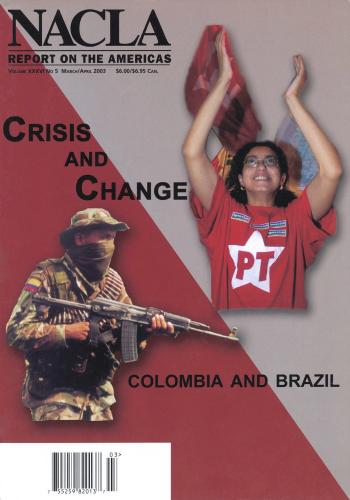Report
Brazilian economist Celso Furtado, now 82 years old, was one of Latin America’s most influential economic and social thinkers during the last half of the 20th century. As one of the leading “underdevelopment” theorists connected with the UN Economic Commission on Latin America, he helped develop and promote Import Substitution Industrialization.
From the time it was founded in the early 1980s, the Brazilian Workers’ Party (PT) has maintained that electoral success is not an end in itself but a springboard for developing radical, participatory forms of democracy that will enable the country to start redressing the enormous inequalities in Brazilian society.
“We will carry out an ambitious program of agrarian reform that will make land available to thousands and thousands of excluded Brazilians so that they can pull themselves out of grinding poverty, become family farmers and have a decent standard of life,” said Miguel Rossetto to thunderous applause, as he took office as Minister of Agrarian Reform in January.
Sue Brandford & Jan Rocha
“I was born in Redentor near Tenente Portela in the north of Rio Grande do Sul state. My father farmed a small plot of land. I was only two and a half when my mother died in childbirth.
Last December, when then President-elect Lula da Silva met with the Executive Council of the AFL-CIO in a celebratory gathering in Washington D.C., Federation President John Sweeney said, “It’s a pleasure to have a president we can all call brother here today” and pledged that the U.S. union movement and workers “will stand side by side” with Lula in his struggle to solve Brazil’s serious economic and social problems.
Saravena, Colombia—Boom! Welcome to Saravena, known locally as “Little Sarajevo.” On February 5, the day after my arrival in this remote town of 30,000 people in Arauca department, I was awakened at 6 a.m. by an explosion.
In 1997—back when there was no such thing as a “war on terror” and George W. Bush was just a Texas governor on the make—U.S. aid for Colombia rose to a previously unheard-of level, $88.5 million.
On October 27, 2002, Luiz Inácio Lula da Silva—lathe operator, metalworker, undisputed leader of the independent labor movement that emerged in the late 1970’s to challenge the military regime, founder of the Brazilian Workers’ Party (PT) and a former congressman representing the state of São Paulo—was elected president of the largest and most strategic power in Latin America, the world’s fifth-largest nation in population, and one of the ten largest economies on the globe.

